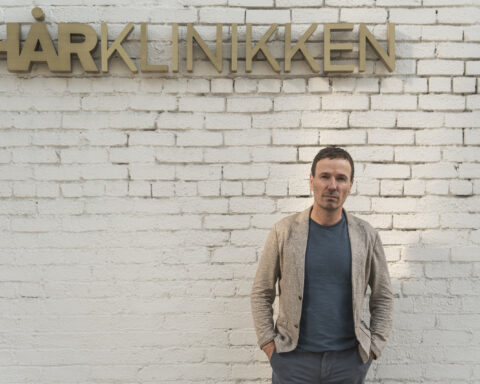Addiction is defined by the American Society of Addiction Medicine as “a treatable, chronic medical disease involving complex interactions among brain circuits, genetics, the environment, and an individual’s life experiences.”
The use of the word “disease” to describe addiction has become widespread over the the last 40 years, and is also supported by many other leading authorities on the subject.
Most see the disease model as helpful to addicts, who prior to this were viewed as just lacking in morality and having deficiencies of character.
But not everyone subscribes to this school of thought, and while it is now the most common definition, it is not universally accepted, with some experts suggesting the label is inaccurate and could even be unhelpful to addicts.
More than 20 million Americans have some form of addiction, yet only 10% of them get treatment. So let’s look at whether addiction should be defined as a disease and what that means for the most important factor in this debate, getting addicts the help they need to overcome this potentially deadly problem.
Here two leading experts in the field give their opposing views.
Greg Skipper MD has more than 30 years experience in addiction medicine and runs the Center for Professional Recovery, a program for helping addicted physicians and other high-profile individuals at Seasons Malibu rehab center in California. Here’s why he believes addiction is a disease.
There are several words that are thrown around that people are more comfortable with than disease, such as an illness or a disorder. So what’s the difference? I think the difference is that disease has the connotation of something from totally outside happening to you, like the Coronavirus. It’s a bug that’s out there and it invades you and causes an illness. People are more comfortable with calling that a disease rather than things that are related to lifestyle. And of course, addiction is not contagious, you can’t catch it.
But there are many things that we normally call diseases that are due to lifestyle other than addiction, like type II diabetes and even coronary disease. I used to be a cardiologist years ago, and coronary artery disease is largely due to lifestyle and behaviors. Yes, there’s a partial genetic component to coronary disease too. Some people are just not genetically prone to it, they can eat a lot of fat and they can smoke and they never get heart disease. So, it’s several things coming together, the hereditary predisposition, the exposure and the lifestyle. I don’t think anybody would say coronary artery disease is not a disease.
In my experience not everybody is prone to addiction. I’ve known a lot of people that have tried dangerous drugs, and they like them for a little while and then they move on, or some people just don’t like them. Then there’s people that are prone to addiction and can’t get enough of the stuff. It’s a difference in their brain that makes them really like it and they keep going for it, and it starts causing this terrible pathology.
There are lots of different models to explain addiction put forward by experts. The one that I like the best is called the public health model, which says every disease is caused by a susceptible host and an agent that can cause the disease in an environment where it can occur. This model of addiction says that there’s a range of a host susceptibility. For example, maybe 10% or 15% of the population are pretty highly prone to addiction, and on the other end of the bell shaped curve maybe 10% 15% that are highly resistant. And then everybody else is kind of in the middle and it depends how much they are subjected to the other factors.
One avenue of science that is pretty clear is that there is a genetic issue with addiction. And that’s known because of family systems and cultural groups like the Pima Indians that are real highly prone to addiction. Studies have shown that people that are addicted tend to have more relatives that were addicted than not. Another proof of the genetic tendency for addiction comes from adoption studies, where they’ve looked at babies adopted from addicted parents to non-addictive homes, and they still have a higher rate of addiction than kids that were adopted from non-addictive parents. And then the most telling are twin studies, where they look at how often identical twins both get addicted, versus fraternal twins. Twins both raised in the same home, with the only difference being that identical twins have exactly the same genes have shown the concordance rate is significantly higher in identical twins than fraternal twins. This means that genes really matter.
We know that the action point in the brain for addiction are the mesolimbic pathways, involving the nucleus acumbens and the prefrontal cortex. These pathways are involved in registering pleasure in the brain associated with dopamine release in the nucleus acumbens as well as things like judgment and impulsivity in the prefrontal cortex. It seems in people prone to addiction there is a deficiency of dopamine, so that when they get a boost of it, it’s much more significant than somebody that’s got enough.
Albert Einstein called the brain the great tangled knot. It’s so complex. And it’s just so hard to unravel it. We have lagged behind in our understanding of brain diseases. For example, we have tended to call them by their symptoms. Instead serotonin deficiency syndrome we call it depression, instead of hyperactive locus ceruleus, we call it anxiety disorder. But we’re starting to realize where these defects are and the terminology may gradually change.
I run an inpatient program in Malibu, and when they are admitted they start feeling so much better. They get their lives back. And why are they able to do that? It’s because it’s confined, there are no drugs, there’s rules, and they are around other people that are dealing with the same thing. So, there’s a camaraderie that develops. And the brain starts healing. And we try to teach and practice new habits to get dopamine the old fashioned way, like exercise, being in a community where you have intimacy and where people are telling the truth and sharing and getting good feelings from each other. And things like meditation and prayer. These things start to give them a sense of joy and purpose and meaning and it really helps them change. And you can’t administer that. But it’s really cool that people turn their life around. It’s almost a magical thing.
Marc Lewis, PhD, is a neuroscientist and professor of developmental psychology who himself has struggled with drug addiction. He wrote the book ’The Biology of Desire: Why Addiction is Not a Disease’ and here he explains why he does not agree with the disease model.
My personal journey started off with my fairly normal childhood until my parents sent me to boarding school for a couple years, aged 15 to 17, which was, for me, a terrible experience and I was very unhappy there — depressed, bullied and all that stuff.
I went from there to Berkeley, California. I landed in Berkeley in 1968, at the very peak of the hippie movement and sex, drugs, rock and roll. So for me, that was like, “OK. I’ve lived in hell for two years now. And this is fabulous.”
So I got into psychedelics very quickly to did lots of LSD, smoked lots of dope and then I also got into darker drugs, heroin, methamphetamine, which now I see as a totally different classes of substances. And that was the beginning of an almost 12 year long period of on and off addiction to opiates and sometimes other nasty drugs as well. I struggled with it, but I was able to function as a student. I went to the University of California, Berkeley, and did well.
I went back to Toronto, Canada, and got married. And it was a marriage that was never meant to be. So I lived in a state of anxiety and got back into drugs and started stealing them. So I was I was really living a very chaotic and antisocial lifestyle, stealing stuff from pharmacies, labs and stuff like that, and eventually got convicted for theft. At that time I had just got into graduate school to do clinical psychology, so it was really kind of a Jekyll and Hyde existence.
This cycle went on for years until finally, around the age of 30 or 31, I was able to stop completely after many efforts. And then things got a lot better. I was kicked out of grad school as soon as I got convicted, because they don’t want their clinical psychology students to go off and steal drugs at night. But after a few years working my way back up the mental health ladder from group homes to working with street kids and stuff like that, I finally got the nerve to reapply to grad school got accepted and did really well. I got a masters degree and was told I was really good at this. So I kept going, got a PhD and a job at the University of Toronto, and began my career as a professor at aged 38.
I got into neuroscience after 10 or 12 years of doing straight psychology. I was really interested in how the brain works in addiction, having been an addict myself for a dozen years, so that’s how I put those two things together.
It first struck me having been an addict myself, “Why would anyone call this a disease? It doesn’t feel like a disease.” It’s not something you catch, it is not something you can particularly cure, it just seemed like the wrong category. And then I realized that the field was really written by these these warring factions. There are a lot of experts, mostly doctors and psychiatrists, who said, “Of course, it’s a disease. People who have addictions are patients, and they basically need to do what they’re told if they want to get better. Because it’s a chronic disease, and therefore you can’t ever really get rid of it.” Another thing that really bothered me is that the majority of people addicted to any substance, including heroin, stop eventually. And the other thing was knowing about the brain as a developmental psychologist, I was very aware that the brain changes with learning in really fundamental ways. So the addiction is a disease camp, their fundamental platform is based on the truism that when you become addicted, your brain changes. Well, yeah, your brain also changes when you fall in love, when you have a religious conversion, and when you go to psychotherapy — your brain is changing all the time. It just seems dumb to me. So putting all those things together, I thought: “Okay, someone has to really take this by the horns.”
Here’s the problem. When you talk about brain change and addiction, are you talking about what the substance does to your brain? Well, if you are then the same brain changes are common to substance addiction, gambling, porn addiction, and eating disorders. So it can’t be the substances.
If you’re prone to be a risk taker, or towards antisocial behavior, or impulsivity, then you’re more likely to become an addict. If you’re at the other end of the spectrum, if you tend to be depressive and introverted, you’re also more likely to become an addict. So the problem with the genetic explanations is there’s not any particular personality type which in itself makes you prone to addiction. Rather, there’s a bunch of different areas there.
There’s now a certain amount of research that shows that if you believe that addiction is a disease, your chances of quitting are not as high. Because if you’ve got a chronic disease, you’ve got a chronic disease. People may say the disease model has helped addicts to escape the stigma that was attached to addiction, because they used to say if you become and addict that you’re a bad person, you’re self-indulgent. And if you’ve got a disease, then you can get rid of all those labels, and it’s not really your fault. Well, the problem though, is that if you are labeled with having a mental illness, there’s other kinds of stigma, and they’re not so easy to escape. There’s a lot of discussion in the whole mental health field about the defining people in terms of mental illness in itself hammering some nails in the coffin.
AA has been helpful for some people. But for a majority of people who walk in that door, it’s not necessarily for them. So people who feel that they want to take control of it themselves need to have some scaffolding to help them with the rethinking their lives. And there’s a number of therapeutic approaches, and also mindfulness approaches that are really, really beneficial. So in therapy, there’s motivational interviewing that is particularly useful for people with addiction. ACT, acceptance and commitment therapy is also particularly helpful. And my favorite these days is called internal family systems therapy. One of the big problems is that you can’t reconcile the need and the desire and the actual pursuit of drugs or other rewards with the rest of your life. It’s like you’ve got what they often call the addict voice, which is kind of urging you in that direction. Then you’ve got the self critical voice, which is saying, “You’re piece of s*** and for doing this, you’re an asshole, you’re an addict and weak.” And in IFS, they take the voices apart, and they say these parts each have their own agenda, and they’re both trying to help you in radically different ways. And rather than trying to get rid of the addict voice entirely, you’d say, “OK, let’s try to understand where it’s coming from, how did it arise?” And learn how to make peace.











